- Cobra Pose
- Boat Pose
- Warrior 1
- Plank Pose with Knee-to-Elbow
- Upward Plank Pose
- Half-Lord Fishes Pose
- Firefly Pose
- Arm Balance Scissor Pose
- Peacock Pose
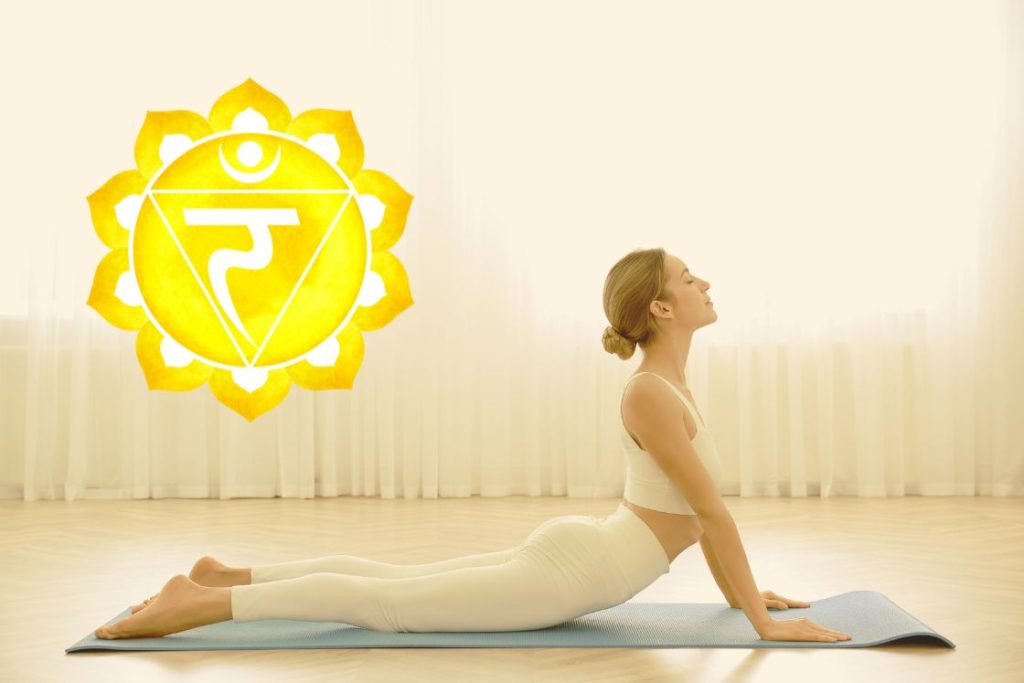
The solar plexus chakra, also known as Manipura in Sanskrit, is one of the seven main energy centers in your body. It plays a pivotal role in your emotional and physical health. If you’re interested in yoga for the solar plexus chakra, you’re targeting an area crucial for self-esteem, willpower, and confidence.
Location and Characteristics
This chakra is located in the upper part of the abdomen, in the area of the diaphragm. It’s located about a few inches above the navel and below the chest.
The solar plexus chakra is represented by the color yellow and is associated with the element of fire. It control aspects such as your personal power, self-esteem, and sense of purpose. When it’s balanced, you feel in control and have a strong sense of self-worth.
The Solar Plexus region is commonly referred to as “the core” of our body. This region is rich in muscles that control your overall body stability and balance, densely packed with organs and glands aiding your digestion, metabolism, and nutrient absorption, and houses nervous pathways responsible for many gut-brain connections. In terms of Ayurveda, this part plays a major role in controlling your Agni, the digestive fire.
Signs of Solar Plexus Imbalance
Low Self-Esteem: a lack of self-confidence and feelings of inadequacy may occur.
Indecisiveness: It may be difficult to make decisions and question oneself.
Lack of Motivation: There may be a feeling of stagnation and decreased enthusiasm for life’s things.
Digestive Problems: Physical symptoms such as stomach pain, indigestion or irritable bowel syndrome may be prevalent.
Fatigue: There may be a persistent feeling of tiredness or low energy.
Irritability: There may be increased sensitivity to criticism or a tendency to become easily frustrated.
Lack of Purpose: A sense of aimlessness or lack of direction in life may be present.
Preparing for Practicing Yoga that Balances Your Solar Plexus Chakra
Before diving into poses for the Manipura chakra, it is important to establish the proper foundation for your practice. This will help you get the most out of the yoga postures specifically designed to balance the solar plexus chakra. Below are some important preparatory steps:
- Ideal Environment
Choose a space that’s quiet and free from distractions. Make sure the room is well-ventilated but not too cold. You want to be comfortable while focusing on your yoga for solar plexus chakra practice. A clean and uncluttered environment will help center your mind so you can more easily engage in the exercises you’ll be doing.
- Breathing Techniques
Breathing is a critical aspect of any yoga practice. For the Solar Plexus Chakra, try the Nadi Shodhana (Alternate Nostril Breathing) technique. Here’s how to do it:
- Sit in a comfortable position.
- Close your right nostril with your right thumb and inhale through the left nostril.
- Close your left nostril with your right ring finger, open your right nostril, and exhale.
- Now inhale through the right nostril, close it, and then exhale through the left nostril.
- Repeat this cycle for a few minutes.
This pranayama technique can help you focus and prepare your mind for the asanas for Manipura chakra that follow.
- Warm-Up
Before jumping into the main poses, it’s important to warm up your body. Here are a few simple exercises to get you started:
- Arm Circles: Extend your arms out to the sides and rotate them in small circles for about 30 seconds.
- Twists: Sit or stand straight. Turn your upper body to the left and then to the right, gently twisting your spine. Do this 5 times each side.
- Leg Stretches: Sit with your legs extended forward. Reach for your toes to stretch your hamstrings. Hold for about 15-20 seconds.
A proper warm-up can make a significant difference in your yoga for solar plexus chakra. It prepares your muscles and joints for the more complex poses, reducing the risk of injury.
9 Yoga Poses to Balance Your Solar Plexus Chakra
Beginner-Friendly Yoga Poses for Solar Plexus Chakra
If you’re new to the world of yoga, you may be wondering which beginner yoga postures for the Solar Plexus Chakra can help you find balance and energy. Below we present three accessible poses, each with its unique benefits and step-by-step instructions.
1. Cobra Pose (Bhujangasana)
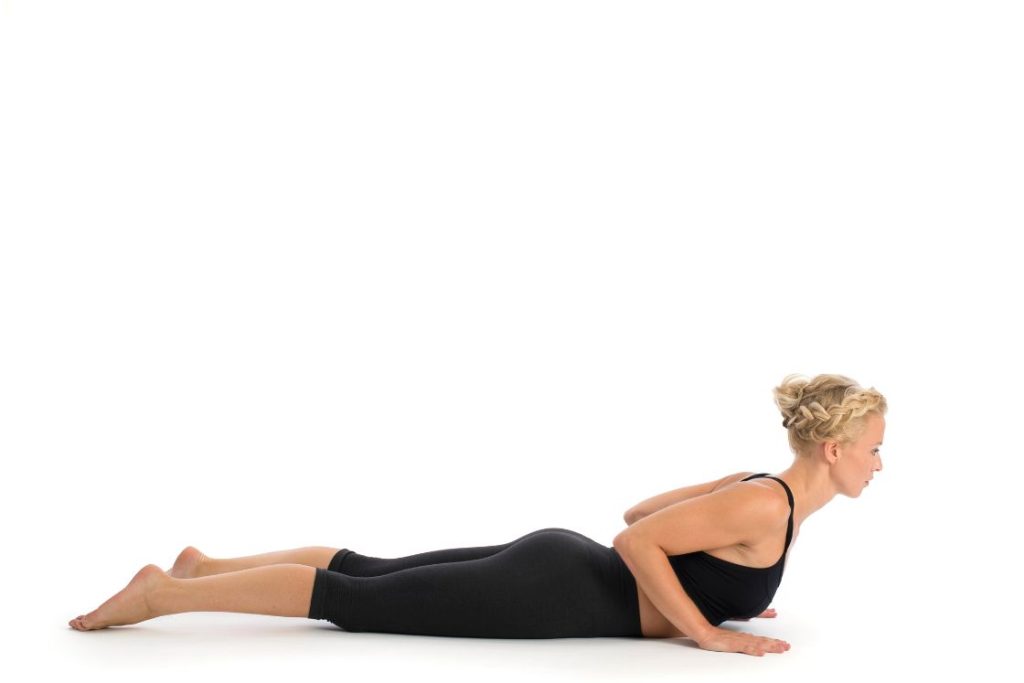
It opens and strengthens the abdominal area where the chakra is located and promotes body awareness. The posture promotes deep diaphragmatic breathing, which dissolves emotional and energetic blockages associated with the chakra.
The upward gaze in Cobra Pose stimulates the energy flow of the chakra and enhances self-confidence and self-empowerment. In addition, the heart-opening nature of the pose promotes personal power, self-esteem and balanced energy in this energy center.
Step-by-Step Instructions:
- Start Position: Lie face-down on your yoga mat, feet hip-width apart.
- Hand Placement: Place your palms flat on the mat under your shoulders.
- Lift: As you inhale, press down through your palms and lift your upper body off the mat. Keep your elbows slightly bent.
- Hold and Breathe: Hold this pose for 15-30 seconds while taking deep breaths.
- Release: Exhale as you lower your body back to the mat.
2. Boat Pose (Navasana)
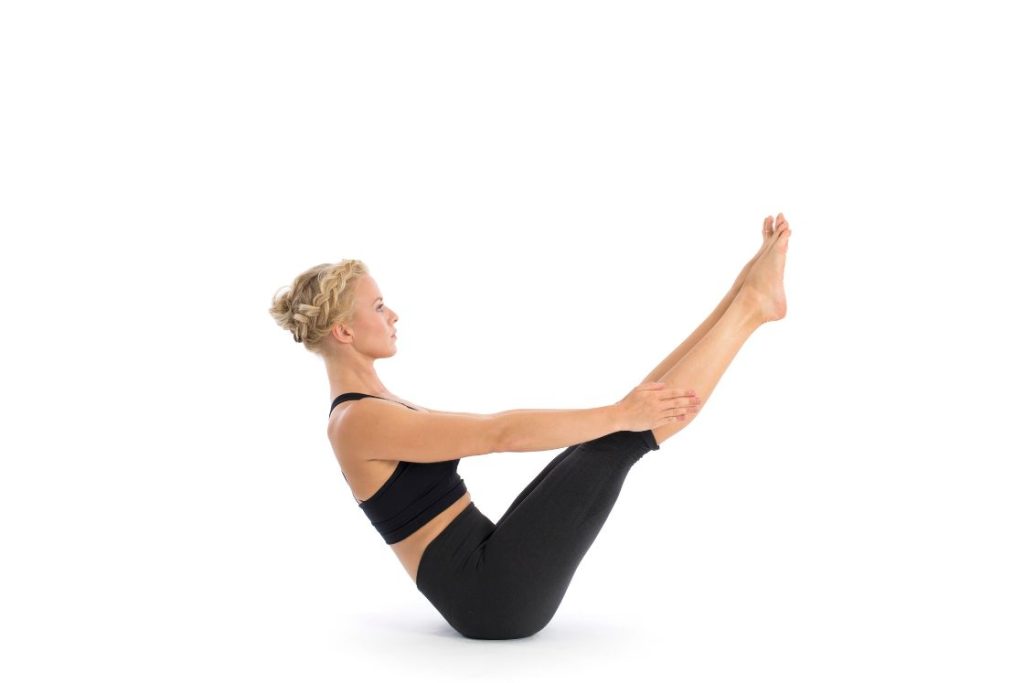
It strengthens the abdominal muscles and promotes awareness in the area of the chakra. The controlled breathing in this pose helps to release emotional blockages. Because the pose requires concentration and core strength, it promotes self-confidence and strength associated with the solar plexus chakra, while improved digestion and vitality support balanced energy in this energy center.
Step-by-Step Instructions:
- Start Position: Sit on your mat with your knees bent and feet flat on the floor.
- Balance: Lean back slightly and lift your feet off the ground, bringing your knees towards your chest.
- Arm Position: Extend your arms forward, parallel to the ground.
- Hold and Breathe: Hold the pose for 15-30 seconds, keeping your back straight and breathing deeply.
- Release: Lower your feet back to the mat as you exhale.
3. Warrior I Pose (Virabhadrasana I)
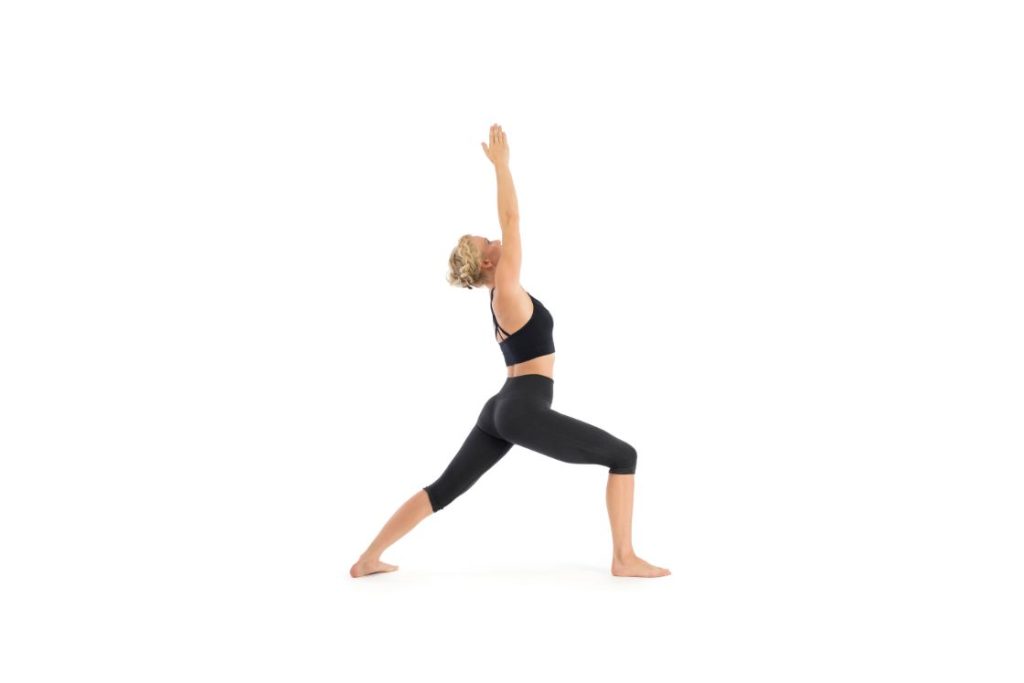
Its strong posture and grounding nature promote stability and inner strength and are consistent with the qualities of the chakra. The arms extended upward open the chest, stimulating the chakra and promoting self- confidence and self-esteem. The focused concentration in this posture promotes mental clarity and self-confidence, which complements the qualities of the chakra. Deep, controlled breaths in Warrior 1 release tension and emotion and promote balanced energy in the solar plexus chakra.
Step-by-Step Instructions:
- Start Position: Stand at the top of your mat, feet together.
- Step Back: Take a big step back with your right foot, about 3 to 4 feet apart.
- Foot Angle: Turn your back foot at a 45-degree angle towards the top of the mat.
- Arm Position: Raise your arms above your head, palms facing each other.
- Lunge: As you inhale, bend your front knee, making sure it aligns over your ankle.
- Hold and Breathe: Maintain this pose for 15-30 seconds while breathing deeply.
- Release: Exhale, lower your arms, and step your right foot forward to return to the start position.
Intermediate Yoga Poses for Solar Plexus Chakra
If you’re past the beginner stage and are looking for something more challenging, here are three intermediate yoga poses for the solar plexus chakra. Each of these asanas targets the Manipura chakra in a unique way, helping you build strength, balance, and focus.
4. Plank Pose with Knee-to-Elbow (Knee-to-Elbow Plank)
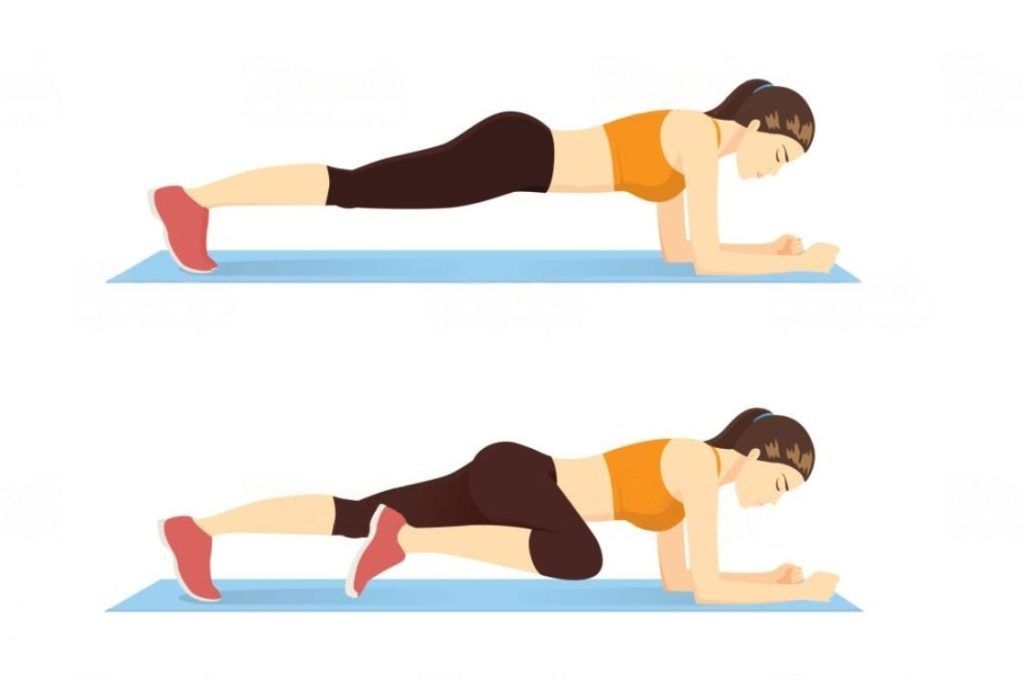
Plank Pose with Knee-to-Elbow effectively balances the Solar Plexus Chakra by engaging core strength for stability and alignment of internal power. It activates the abdominal area and promotes body awareness in the area of the chakra. The exercise promotes concentration, mental clarity and self-confidence – key qualities of a balanced solar plexus chakra. In addition, controlled breath and movement in this dynamic posture help release tension and emotions, contributing to balanced energy in the solar plexus chakra.
Step-by-Step Instructions:
- Start Position: Begin in a standard plank position, with your hands under your shoulders and your body in a straight line.
- Movement: Lift your right knee towards your right elbow while maintaining the plank position.
- Hold and Breathe: Hold the knee-to-elbow position for 3-5 seconds while breathing normally.
- Return: Straighten your right leg back to the plank position.
- Repeat: Do the same on the left side.
- Sets: Perform 3 sets of 5 repetitions on each side.
5. Reverse Plank Pose (Purvottanasana)

Reverse Plank Pose in yoga balances the Solar Plexus Chakra by engaging the core and back muscles and promoting inner strength. It stimulates the chakra by opening the chest and aligning the shoulders, which boosts self- confidence and self-determination. The posture promotes controlled breathing and concentration, which leads to mental clarity and self-confidence. It also releases pent-up emotions and tension and contributes to balanced energy in the solar plexus chakra.
Step-by-Step Instructions:
- Start Position: Sit on your mat with your legs straight in front of you.
- Hand Position: Place your palms on the mat behind you, fingers pointing towards your feet.
- Lift: Press down through your palms and feet to lift your hips towards the ceiling.
- Hold and Breathe: Keep your body in a straight line and hold for 15-30 seconds while taking deep breaths.
- Release: Lower your hips back down to the mat as you exhale.
6. Half Lord of the Fishes Pose (Ardha Matsyendrasana)
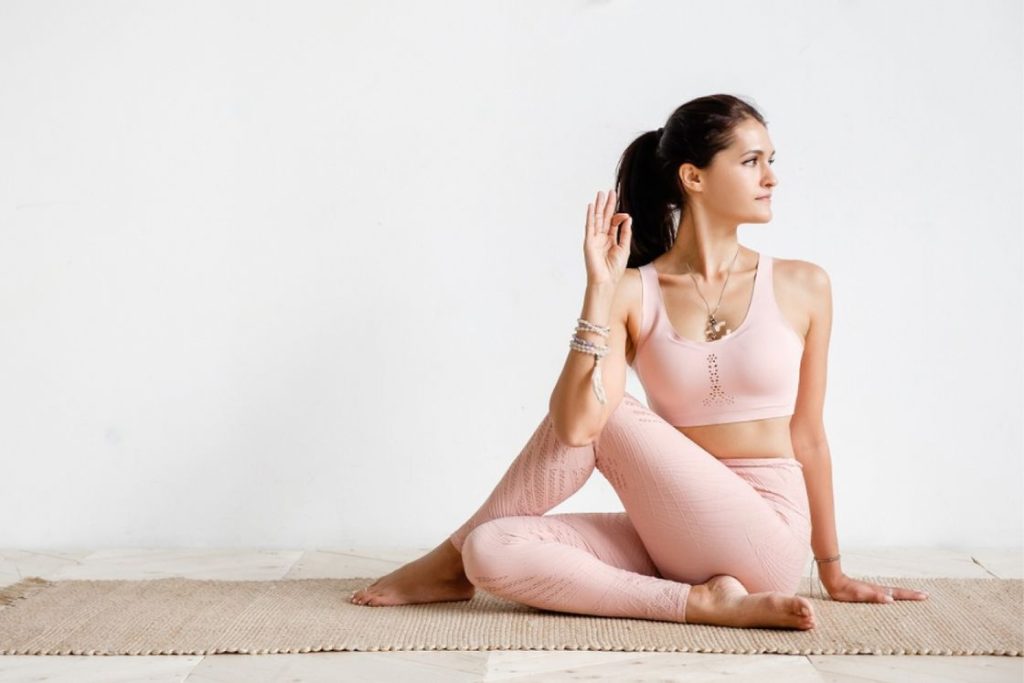
The Half lord of Fishes Pose balances the Solar Plexus Chakra through a deep spinal rotation that stimulates and dissolves energy blockages in this chakra. Pressure on the abdomen massages and revitalizes the associated digestive organs, promoting digestion and intestinal health. Focused mindfulness during the exercise promotes a connection to inner strength and self-confidence and harmonizes the energy of the solar plexus chakra.
Step-by-Step Instructions:
- Start Position: Sit on your mat with your legs straight.
- Bend Knees: Bend your knees and place your feet flat on the floor.
- Foot Position: Slide your left foot under your right leg so that it comes to the outside of your right hip.
- Twist: Place your right hand behind you for support. Inhale and lift your left arm, then exhale and twist to your right, placing your left elbow outside your right knee.
- Hold and Breathe: Hold the pose for 20-30 seconds, breathing deeply.
- Release and Switch: Unwind the twist, straighten your legs, and repeat on the opposite side.
Advanced Yoga Poses for Solar Plexus Chakra
For yoga enthusiasts who have gained considerable experience and are ready to advance their practice, here are three advanced yoga poses for the solar plexus chakra. Each of these asanas focuses on the Manipura chakra in complex yet highly effective ways, taking your yoga practice for the solar plexus chakra to the next level.
7. Firefly Pose (Tittibhasana)
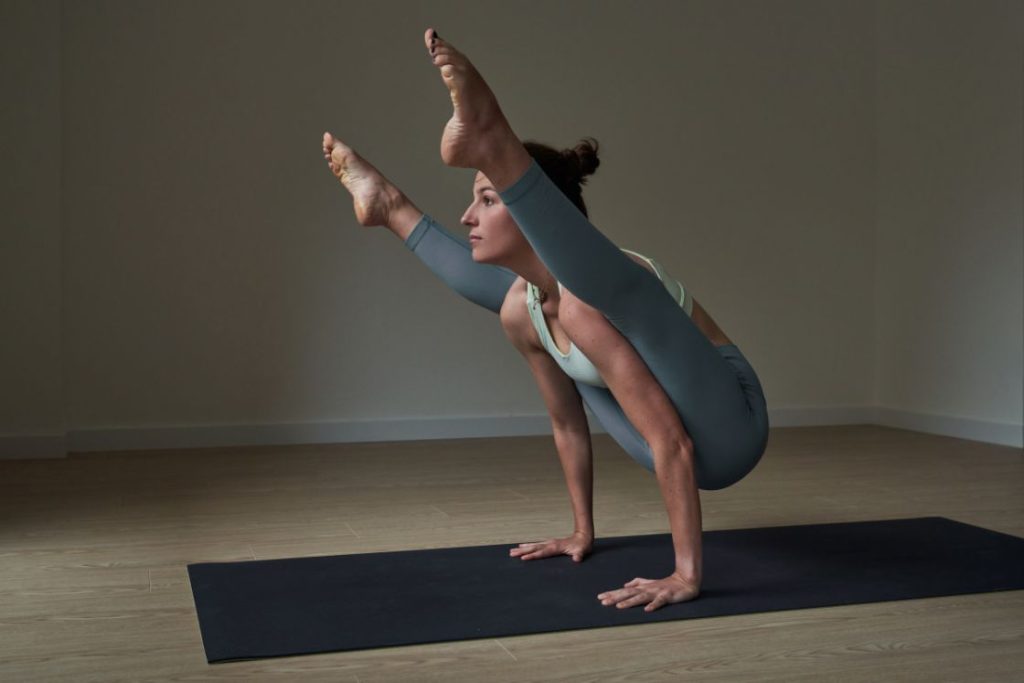
Advanced pose such as Firefly Pose or Tittibhasana (Sanskrit) can help balance the Solar Plexus Chakra by challenging strength, confidence and inner control. This challenging arm balance requires core engagement and mental focus, and promotes self-confidence and a sense of personal power – qualities associated with a balanced Solar Plexus Chakra. The process of mastering the firefly position can strengthen the practitioner both physically and mentally and bring them into alignment with the properties of the chakra.
Step-by-Step Instructions:
- Start Position: Begin in a standing position with your feet hip-width apart.
- Squat Down: Lower yourself into a squatting position.
- Hand Placement: Place your hands on the mat between your legs, with your palms down.
- Leg Position: Slide your legs over your upper arms.
- Lift: Use your core strength to lift your feet off the ground, extending your legs straight out in front of you.
- Hold and Breathe: Hold the pose for 5-10 seconds while maintaining deep breaths.
- Release: Gently lower your feet back to the ground and stand up.
8. Arm Balance Scissor Pose (Eka Pada Koundinyasana)
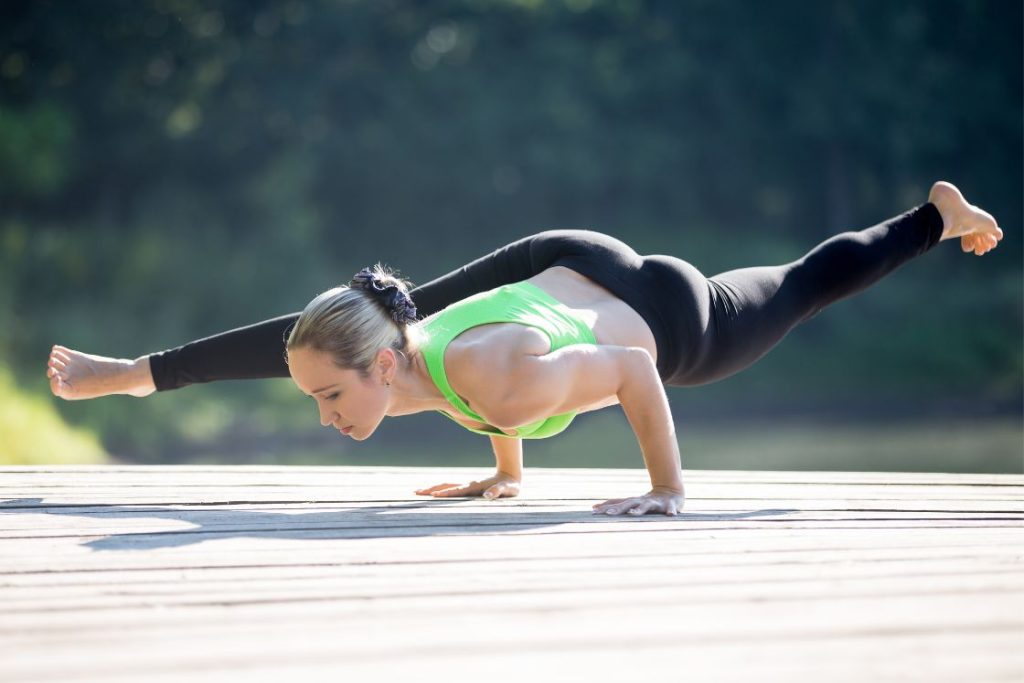
Advanced Arm Balance Scissor Pose (Eka Pada Koundinyasana) can help balance the Solar Plexus Chakra, calling for physical and mental strength and boosting self-confidence and personal power. The pose requires a strong core, arm strength and balance, and promotes a sense of inner control and empowerment consistent with the qualities associated with a balanced Solar Plexus Chakra. Practicing this challenging pose can promote self-confidence and harmony in the energy center of the third chakra.
Step-by-Step Instructions:
- Start Position: Begin in a Downward Dog position.
- Move to Lunge: Step your right foot forward into a lunge.
- Hand Placement: Place both hands on the mat on the inside of your right foot.
- Twist and Extend: Rotate your right shoulder under your right knee and extend your leg, balancing on your hands.
- Hold and Breathe: Hold for 5-10 seconds while breathing deeply.
- Release: Gently untwist and return to Downward Dog before switching sides.
9. Peacock Pose (Mayurasana)
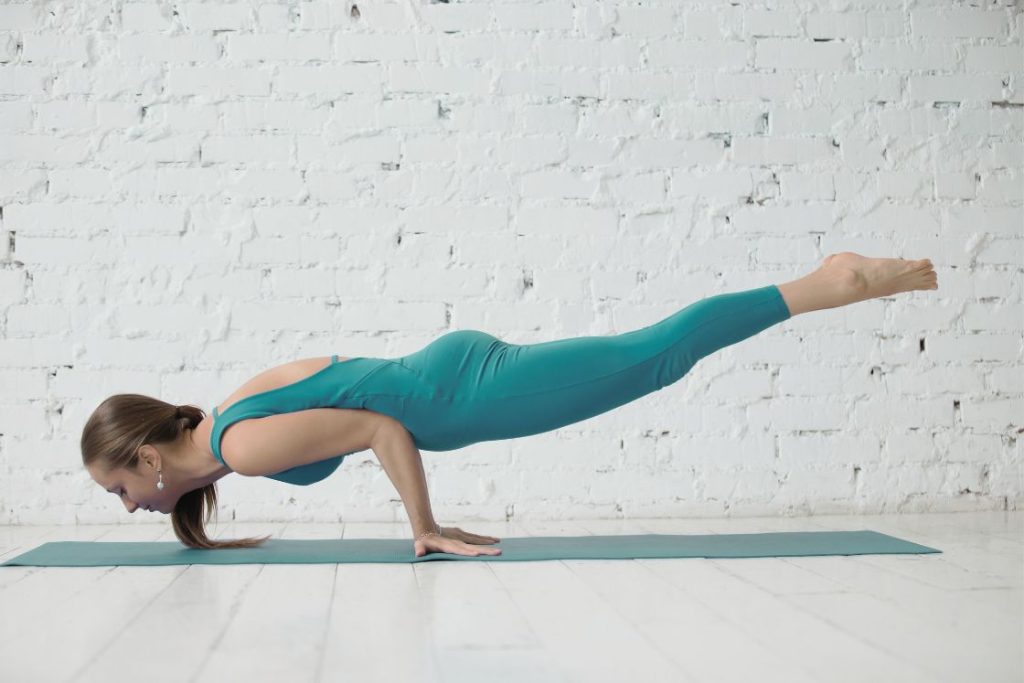
Peacock Pose (Mayurasana) is an advanced yoga pose that can effectively balance the solar plexus chakra. This challenging pose requires not only physical strength, but also mental focus and self-confidence, which are part of a balanced Solar Plexus Chakra. By regularly practicing the Peacock Pose, individuals can strengthen their core, stimulate digestion, and increase their inner strength and self-confidence, which ultimately promotes harmony in the Solar Plexus Chakra.
Step-by-Step Instructions:
- Start Position: Kneel on the mat and lean forward to place your hands on the ground.
- Arm Position: Keep your elbows close to your abdomen.
- Lean Forward: Lean your upper body forward while lifting your legs off the ground.
- Balance: Balance your body weight on your hands.
- Hold and Breathe: Maintain this position for 5-10 seconds, taking deep breaths.
- Release: Lower your legs and return to the kneeling position.
Tips and Precautions
Congratulations on taking a significant step toward understanding the power of yoga for the solar plexus chakra! Before you dive into these poses, let’s go over some critical safety measures, tips for effective practice, and the best times to engage in yoga for balancing the Manipura chakra.
Safety Measures:
- Warm-Up: Begin your practice with a gentle warm-up to prepare your body for the poses.
- Alignment: Pay attention to proper alignment in each pose to prevent strain or injury.
- Physical Limitations: Listen to your body and modify poses as needed, especially if you have any physical limitations or injuries.
- Consult a Doctor: If you have any chronic or severe health conditions, consult your healthcare provider before attempting these poses.
- Pregnancy and Post-Surgery: Pregnant individuals or those who have recently undergone abdominal or spinal surgery should avoid certain advanced poses.
Effective Practice:
- Consistency is Key: Regular practice is more effective than doing a lot in one go. Aim for consistency to get the most out of yoga for balancing Manipura chakra.
- Breath Awareness: Focus on controlled and mindful breathing throughout your practice to enhance its effectiveness.
- Visualization: Visualize a bright yellow light at your Solar Plexus area to enhance chakra activation.
- Affirmations: Use positive affirmations related to self-worth and personal power during your practice.
- Quality Over Quantity: It’s not about how many poses you can do, but how well you can do them. Aim for quality in each asana for Manipura chakra.
Best Time for Practice:
- Morning Hours: Morning is generally the best time for any form of yoga practice, including yoga for solar plexus chakra. The stomach is empty, and the mind is clear, making it easier to focus on the Manipura chakra.
- Evening Calm: If mornings don’t work for you, early evening is another suitable time. Ensure you haven’t eaten at least two to three hours before practicing.
Conclusion:
To effectively balance the Solar plexus Chakra, practice these poses mindfully and focus on your breath and intentions. Visualizing a bright yellow light in the solar plexus area can also help activate the chakra. Consistent practice and self-reflection can help restore balance and strengthen this energy center.




